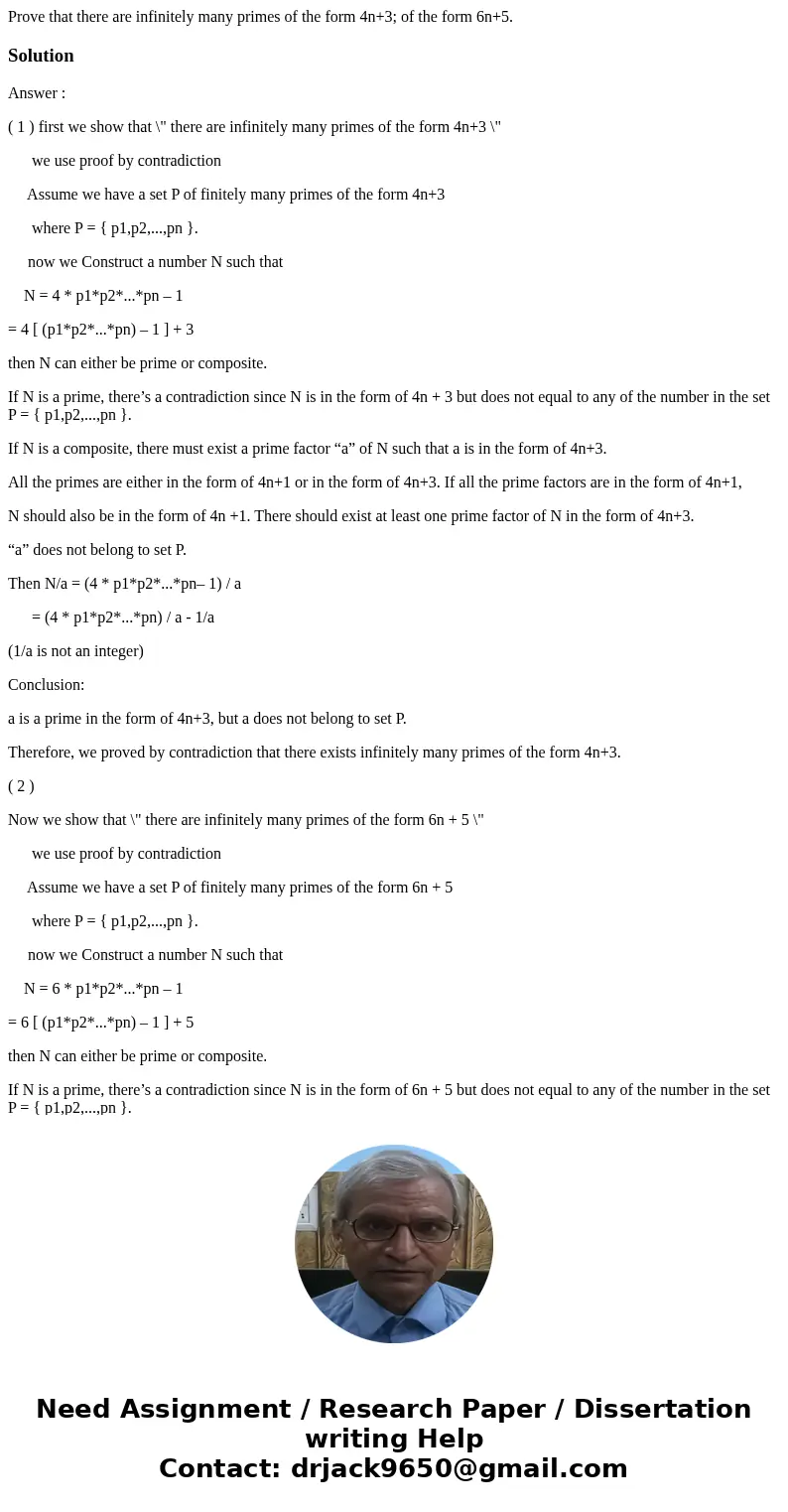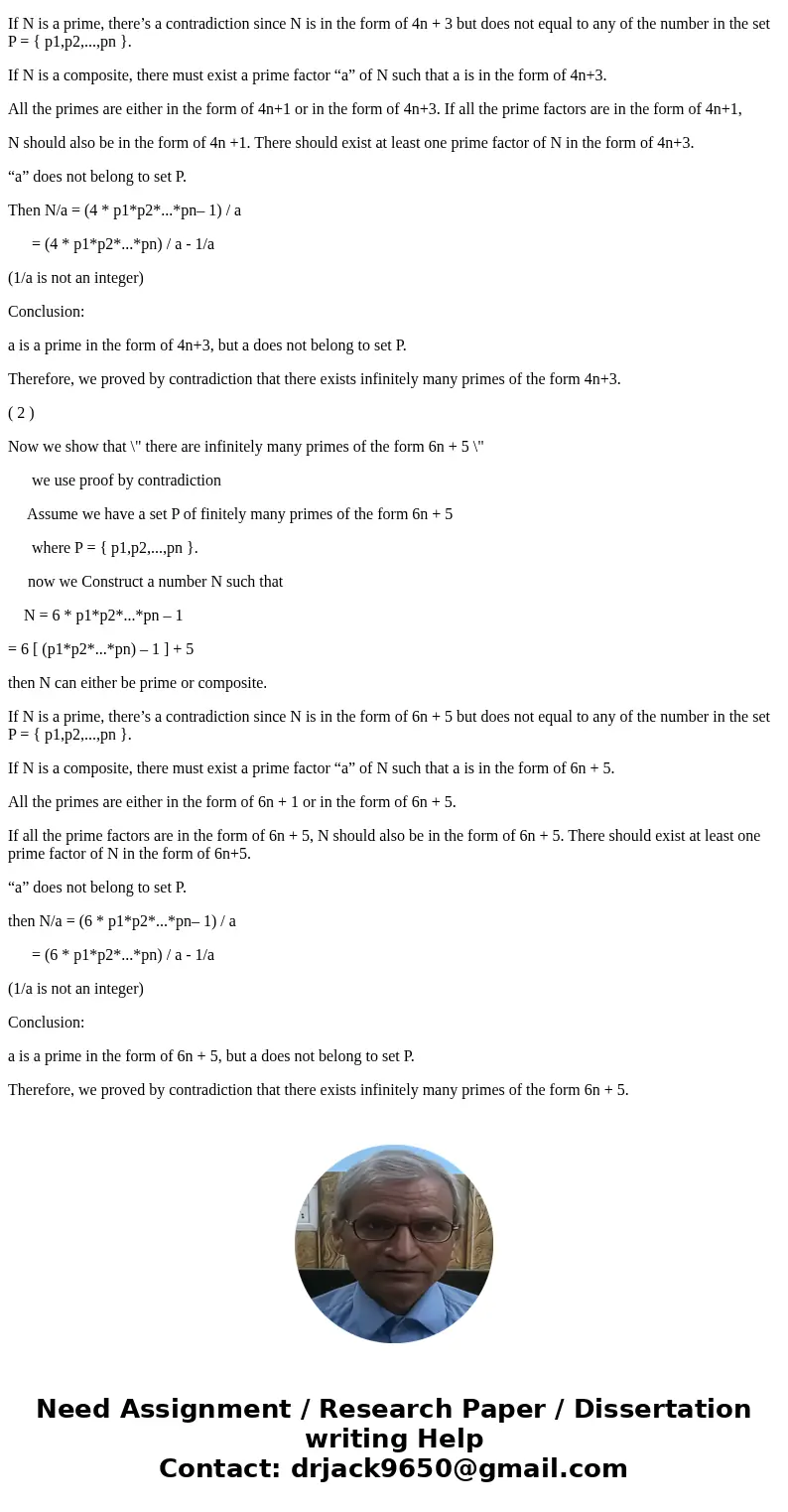Prove that there are infinitely many primes of the form 4n3
Prove that there are infinitely many primes of the form 4n+3; of the form 6n+5.
Solution
Answer :
( 1 ) first we show that \" there are infinitely many primes of the form 4n+3 \"
we use proof by contradiction
Assume we have a set P of finitely many primes of the form 4n+3
where P = { p1,p2,...,pn }.
now we Construct a number N such that
N = 4 * p1*p2*...*pn – 1
= 4 [ (p1*p2*...*pn) – 1 ] + 3
then N can either be prime or composite.
If N is a prime, there’s a contradiction since N is in the form of 4n + 3 but does not equal to any of the number in the set P = { p1,p2,...,pn }.
If N is a composite, there must exist a prime factor “a” of N such that a is in the form of 4n+3.
All the primes are either in the form of 4n+1 or in the form of 4n+3. If all the prime factors are in the form of 4n+1,
N should also be in the form of 4n +1. There should exist at least one prime factor of N in the form of 4n+3.
“a” does not belong to set P.
Then N/a = (4 * p1*p2*...*pn– 1) / a
= (4 * p1*p2*...*pn) / a - 1/a
(1/a is not an integer)
Conclusion:
a is a prime in the form of 4n+3, but a does not belong to set P.
Therefore, we proved by contradiction that there exists infinitely many primes of the form 4n+3.
( 2 )
Now we show that \" there are infinitely many primes of the form 6n + 5 \"
we use proof by contradiction
Assume we have a set P of finitely many primes of the form 6n + 5
where P = { p1,p2,...,pn }.
now we Construct a number N such that
N = 6 * p1*p2*...*pn – 1
= 6 [ (p1*p2*...*pn) – 1 ] + 5
then N can either be prime or composite.
If N is a prime, there’s a contradiction since N is in the form of 6n + 5 but does not equal to any of the number in the set P = { p1,p2,...,pn }.
If N is a composite, there must exist a prime factor “a” of N such that a is in the form of 6n + 5.
All the primes are either in the form of 6n + 1 or in the form of 6n + 5.
If all the prime factors are in the form of 6n + 5, N should also be in the form of 6n + 5. There should exist at least one prime factor of N in the form of 6n+5.
“a” does not belong to set P.
then N/a = (6 * p1*p2*...*pn– 1) / a
= (6 * p1*p2*...*pn) / a - 1/a
(1/a is not an integer)
Conclusion:
a is a prime in the form of 6n + 5, but a does not belong to set P.
Therefore, we proved by contradiction that there exists infinitely many primes of the form 6n + 5.


 Homework Sourse
Homework Sourse